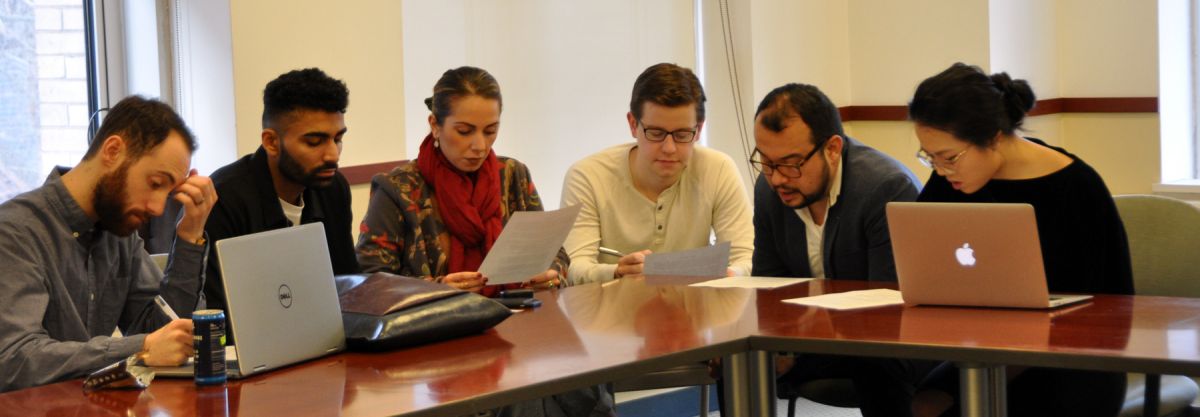Intensive DR courses offer students an opportunity to engage with dispute resolution and advocacy skills through comprehensive simulations under the supervision of top practitioners.
Intensive January Dispute Resolution Courses
Collaborative Family Law
This interactive class introduces students to Collaborative Family Law, a fast-growing dispute resolution process, which offers a new framework and skill set to help attorneys resolve conflicts out of court. Through a combination of lecture, demonstration, discussion and role play, students will learn the fundamental concepts and basic skills that underlie the collaborative framework. The class is structured around the actual stages of the collaborative negotiation process, from the initial consultation with clients and assessing appropriateness of the process, to the joint meetings, through the "end game" of negotiating a collaborative settlement.
IMAP: Intensive Mediation Advocacy Program
This intensive, interactive course introduces students to negotiation and mediation theory and develops strategies and skills for effective attorney representation in mediation. Students will examine attorney responsibilities in advising clients about dispute resolution options, in preparing both the case and the client for mediation, and in representing the client effectively in a mediation session. The program culminates in the students participating in a mock mediation coached by seasoned mediators.
International Commercial Arbitration Advocacy
As global commerce continues to grow, international arbitration has emerged as the preferred mechanism for resolving cross-border disputes. Success in this dynamic field requires strong skills in both written and oral advocacy. This two-credit course is designed to: (1) Provide an overview of the key legal and strategic issues that arise throughout the lifecycle of an international arbitration; (2) Introduce advocacy techniques and principles applicable across dispute resolution forums; and (3) Offer practical training in both oral and written advocacy through interactive exercises. Students will work through a simulated arbitration case, culminating in a final mock arbitration hearing in which they will apply the skills acquired during the course. Active participation in class discussions and exercises is expected and essential to the learning experience. This course will be especially valuable for students interested in international dispute resolution, litigation, or cross-border transactional practice.
Interviewing and Counseling
This course provides students with an overview of the theory and practice of client interviewing and counseling in a range of legal contexts. Students engage in frequent simulation exercises and explore the role of interviewing and counseling in the development of case theory and as a method of conflict resolution and prevention. Students will practice counseling clients regarding their legal options, including the selection of the optimal dispute resolution process.
Representation in Arbitration
This skills-focused course prepares students to represent clients in private arbitration proceedings. After discussing the basic legal framework for arbitration in the United States, the course will delve into practical lawyering skills that are unique to arbitration. Topics include drafting arbitration agreements and selecting arbitrators, as well as advocacy techniques for opening and closing statements, and conducting direct and cross-examinations. Students also examine the relationship between arbitration and the courts, with particular attention to motions to stay or compel arbitration, and motions to vacate or confirm arbitral awards. Broader client counseling questions will also be considered, including advising clients on selecting the most appropriate conflict resolution mechanism for their dispute. Students emerge from the course with a firm grasp of the basic vocabulary, procedure and advocacy skills necessary to represent clients in arbitration.





